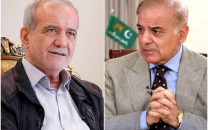Modi — mortal after all
The anti-Modi camp grabbed 178 seats, or two-thirds majority in the 243-member state assembly

Modi — mortal after all
The result indicates that despite warnings, Modi did not mend his ways.
Reserve Bank of India (RBI) Governor Raghuram Rajan had indirectly warned the government that “excessive political correctness stifles progress”. But the most explicit warning for Modi came from Moody’s Analytics — an arm of Moody’s credit ratings division. It warned Modi that he is risking his “domestic and global credibility” by remaining silent on the shrinking space for minorities. The Bihar debacle proved that warnings by both Moody’s and the RBI governor were called for. Though accurate, these warnings were at least a few months late. Had these warnings come some months earlier, the BJP could have tried to change its current course vis-a-vis communalism in India.
Even the comments from the RBI governor on growing intolerance in the country came after Moody’s warning. Timing is of utmost import. Understandably, Indian officials and businessmen must have been fearful of speaking on sensitive issues, especially when it can draw the ire of an exceptionally powerful prime minister.
Unfortunately, the Indian government rejected Moody’s report instead of taking it as a wake-up call. Now the BJP-led alliance will face further problems in passing pieces of critical legislation. Leading Indian newspapers have also voiced their concerns about future legislation that will further dampen the confidence of the domestic and international business community.
Resultantly, the reform agenda for which the Modi administration received overwhelming support in the general election in May 2014 will come under further scrutiny. It will be more challenging now for Modi to counter the emboldened opposition in parliament while retaining the trust of the business community.
Issues like the violation of minority rights and intolerance have a spillover effect, as they are now hurting the Indian economy. The divide-and-rule policy of the BJP helped it gain power in 2014, but the continuation of this policy seems difficult now. From now on, the Modi Administration must choose either inclusive economic growth or decay.
Published in The Express Tribune, November 18th, 2015.



















COMMENTS
Comments are moderated and generally will be posted if they are on-topic and not abusive.
For more information, please see our Comments FAQ